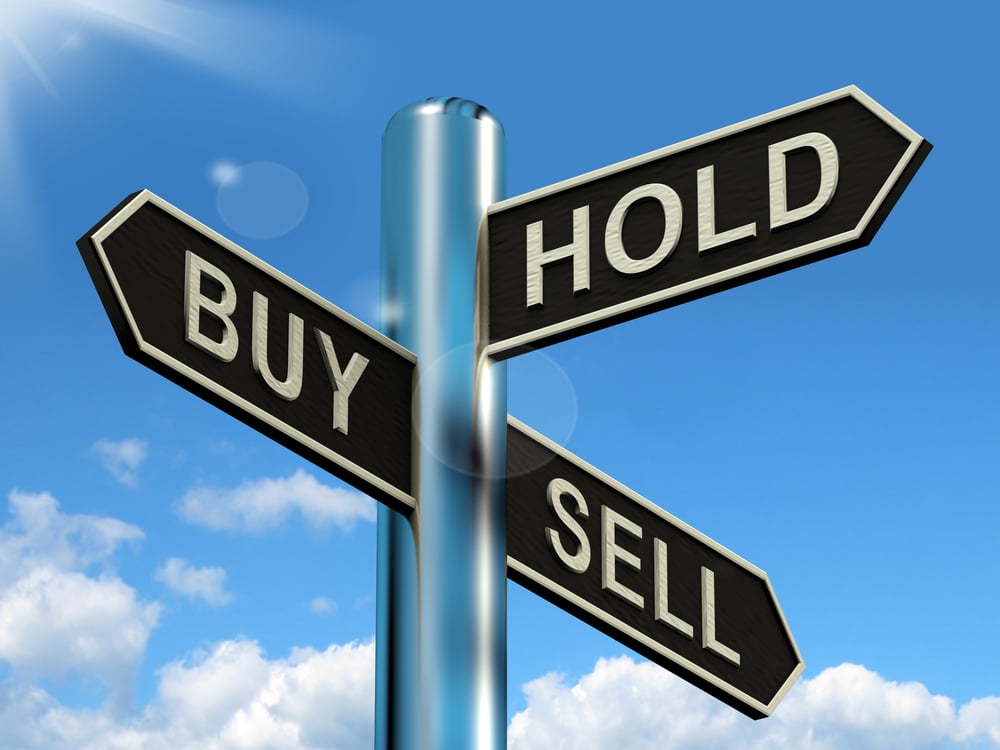Costco vs Amazon: an end of the year showdown How do Costco Wholesale and Amazon.com compare at the end of the year, and does this information affect their moderate buy ratings?
By Keala Miles
This story originally appeared on MarketBeat

Costco Wholesale (NASDAQ: COST) and Amazon.com (NASDAQ: AMZN) are both giants in their respective industry sectors, but while they may approach their commercial businesses differently, they have a lot of similarities. And as the end of the year approaches, it appears their stocks may have a few similarities as well.
For one, analysts have rated both Costco and Amazon as moderate BUYs in the first week of December. They are also both down since around the same time last year and both are operating with a net margin of around 2.41%. But that is just about where their similarities end.
Costco Is Down But Not Out
For Q2 of the fiscal year 2022, Costco's current EPS is $4.20, which beat the earnings estimate by $0.08 when Costco released its September earnings. This puts the earnings up $0.30 over the same period last year. Furthermore, it is a big jump from the $2.92 the company posted last quarter.
But despite an upward earnings trend across most of the last 6-12 months, the stock's value is still down more than -9% over the past three months and more than -11% over the past 12 months. Furthermore, COST is down -15.12% YTD.
While the stock is currently down, things could be much worse. After all, the Costco share value has experienced a steady climb since its $10.00 on December 5, 1985 IPO; that is until around April 2009, when growth started to escalate in a more exponential way. The stock was around $41 at the time, which means it took 14 years to grow 400%, but then the growth rate skyrocketed another 1000% in about the same amount of time.
This is what has led the stock to reach its current share price of $481.97. While this value is down from the stock's all-time high of $604.96—which it reached on April 7th of this year—the historic trend suggests that this should be temporary. Indeed, growth is not necessarily something that Costco needs to worry about.
Amazon Is Slipping But Shows Promise
Of course, Amazon has the inherent benefit of accessibility: you do not need to have a [paid] Prime membership to shop there. And while Costco does have a website where members can shop for store exclusives and items you may not find in a physical outlet, Amazon's success has deep roots in e-commerce. This does not mean, of course, that Amazon is always the clear dominant force online, but they are formidable, to say the least. And that is a strength that may not be apparent in the numbers.
Still, the stock has been in major decline over the last two years, falling from historical highs of around $185 during the 12 consecutive months between late 2020 and late 2021. Despite the big slide, earnings have been pretty flat; at least, until now. It appears that analysts anticipate a big recovery from Amazon.
It should not really come as a surprise that Amazon has experienced a much-anticipated slowdown in its e-commerce sector. The fulfillment of that prediction, of course, is not necessarily something to celebrate. At the same time, it is totally possible that Amazon is actually faring better than the figures might suggest.
Sure, on a fundamental basis, revenue for Amazon Web Service is slowing. And yes, earnings have failed to excite anyone for at least the last year by consistently failing to satisfy the consensus estimate, but Amazon has a notable upside of 64.4%, and analysts project earnings could grow more than 124%. That is not something to take lightly.
COST May Be A Better Value Than AMZN
Both Costco and Amazon stocks have high Price-to-Earnings ratios (P/E) so they could both be overvalued. However, Amazon's 81.73 P/E ratio is nearly twice that of Costco, which has a P/E of 36.68. This means that while Costco's P/E is categorically undesirable, Amazon is faring far worse.
On the other side of this, Amazon's return metrics are about half that of Costco. Costco is currently posting a Return-on-Equity (RoE) just shy of 30% and a Return-on-Assets (RoA) of about 9.24%. Conversely, Amazon scored 14.44% and 4.65%, respectively. This means that Costco is, indeed, showing approximately twice the returns as Amazon.
Finally, while both stocks have favorable Price-to-Sale ratios (P/S), the two differ, once again, by a factor of 2. While Amazon has a good P/S of 1.98, Costco's is about half that, at 0.94, which is exceptional. It also suggests that Costco may be a better value than Amazon.
Costco Wholesale is a part of the Entrepreneur Index, which tracks some of the largest publicly traded companies founded and run by entrepreneurs.









